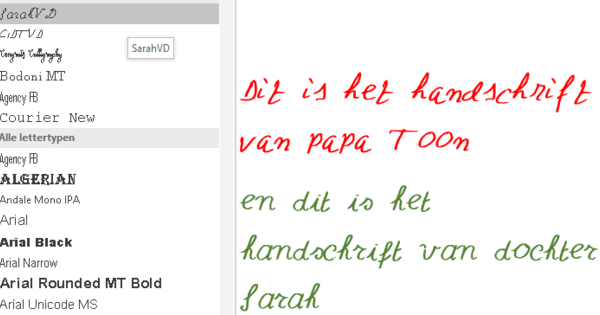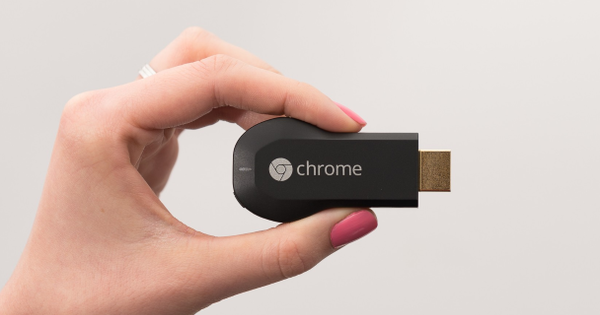If you're looking for a Windows tablet, you'll quickly end up with a Microsoft Surface. The Surface Go 2 is the version that is most reminiscent of, for example, an iPad. We have tested the second variant.
Microsoft Surface Go 2
Price €629 (from €459)Processor Intel Pentium Gold Processor 4425Y
RAM 8GB
Storage 128GB SSD
Screen 10.5 inches (1920 x 1280 pixels)
OS Windows 10 in S mode
Connections USB-C, 3.5mm headset jack, microSDXC card reader
webcam 5 megapixel Windows Hello camera, 8 megapixel rear camera
wireless 802.11/a/b/g/n/ac/ax, bluetooth 5.0
Dimensions 245mm x 175mm x 8.30mm
Weight 544 grams
Battery 26.12 Wh
Website www.microsoft.com
7 Score 70
- Pros
- Compact
- Sturdy housing
- Full HD(+) screen
- Negatives
- No renewal
- Keyboard not included
Since Microsoft calls the device Surface Go 2, you would expect a significant upgrade over the first variant. That doesn't really seem to be the case. For example, the Surface Go is equipped with an Intel Pentium Gold 4425Y where the first Go was equipped with a Pentium Gold 4415Y. A small difference in type number, it is therefore the same processor with a clock speed that is 100 MHz higher. That is negligible and there is no difference in terms of processing power. The housing is also identical to the previous model, but Microsoft has placed a slightly larger screen in it.
However, a more expensive version of the Surface Go 2 is available with an Intel Core m3-8100Y, which is a lot more powerful. The storage doesn't seem to have changed either. The cheapest entry-level model is still equipped with a 64 GB eMMC, while the more expensive variants have a 128 GB SSD. I tested a configuration of the first Surface Go with an Intel Pentium Gold 4415Y, 8 GB ram and a 128 GB ssd. The new Surface Go gave me an almost identical configuration that includes an Intel Pentium Gold 4425Y, 8 GB of RAM and a 128 GB SSD. Are there other than no technical differences at all? Apart from the larger screen, only Wifi 6 and bluetooth 5.0 seem to be new.

Type Cover
The Surface Go runs on Windows 10 in S mode so you can only install applications from the Store, but you can easily switch to the normal version of Windows 10 after which you can install all the software. While Windows 10 was also designed with a touchscreen in mind, Windows remains primarily a desktop operating system. In other words, if you really only need a tablet, it's better to buy something like an iPad. It is precisely the typical desktop capabilities where the power of a Windows tablet lies. And to use those possibilities you need the Type Cover. Buying and using a Surface Go without the Type Cover simply makes little sense. The non-standard delivery therefore almost seems like a trick to keep the sticker price lower, because the Type Cover costs at least 100 euros for the simple heavy version.

Bigger screen
The housing is identical to the previous variant, but Microsoft has placed a larger screen in it. Where the Surface Go had a 10-inch screen, it now uses a 10.5-inch screen. The screen ratio is still 3:2. As a result, the black edges on the glass plate around the screen are somewhat thinner and the resolution is somewhat higher. Where it used to be 1800 x 1200 pixels, it is now 1920 x 1280 pixels. I had no problems with the screen on the previous Go, but a slightly larger screen with more pixels is always nice. In addition, the width of 1920 is now equal to a full HD resolution and that is only handy in terms of software. For example, a full HD film no longer needs to be scaled. The image quality of the panel is still excellent. Support for the pressure-sensitive Surface Pen is also present again, with the same caveat as with the first Surface Go: for graphics applications where the stylus would come in handy, the Surface Go 2 is soon not powerful enough, although you come with the more expensive Core m3 version probably further.

Just as fast
The hardware is almost identical to the first Surface Go and so is the performance. Where the Surface Go scored 1388 points in PCMark 10 Extended, this Surface Go 2 scores 1389 points. With a read speed of 1778 and a write speed of 856 MB/s, the ssd from Kioxia (the new brand name for Toshiba ssds) is somewhat faster than the Toshiba ssd in the Surface Go, but in the end that doesn't matter much. The battery is identical to the previous model with a capacity of 26.12 Wh, but the battery life seems to be better at about eight hours. The first Surface Go had a battery life of somewhere between six and seven hours. The larger screen does not therefore lead to a worse battery life.

Conclusion
Just like two years ago, the Microsoft Surface Go 2 is a nice tablet with Windows on it. Only I had expected more from a device that according to Microsoft deserves the addition 2. Because apart from the slightly larger screen, there is no difference with the Surface Go that I tested two years ago. Of course Microsoft remains dependent on what Intel manufactures, for example, but it is Microsoft that ultimately puts that product on the market. A faster (and more expensive) version of the Go is now available. However, those faster versions are quite expensive. If you want to spend that much, you'd probably be better off buying something a little bigger, but more powerful. All in all, the cheapest configuration with 4 GB ram seems the most interesting. After all, it is still reasonably priced for a tablet, after all, you have to include the 100 euros extra for the Type Cover. You then have all the possibilities of Windows in a small package and that remains an interesting proposition.

